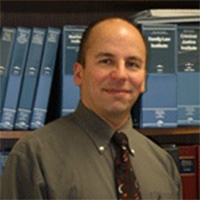Outing Land Use & Zoning Lawyer, Minnesota
Sponsored Law Firm
-
 x
x

Click For More Info:
-
Morris Law Group PA
7380 France Ave S. Suite 250 Edina, MN 55435» view mapAccident & Injury Law We Are Experts In What We Do
Whether it’s your home or business, you are important to us. Reach out today to set up a meeting with one of our experienced Edina lawyers.
800-872-9610
Not enough matches for Outing Land Use & Zoning lawyer.
Below are all Outing Real Estate lawyers.
Edward R Shaw
✓ VERIFIEDDivorce & Family Law, Criminal, Real Estate, Estate, Bankruptcy & Debt
The Law Office of Attorney Edward R. Shaw is located in Brainerd, Minnesota and has been serving the Brainerd Lakes Area and surrounding counties with... (more)
James William Mcgill
Estate Planning, Bankruptcy, Construction, Education, Dispute Resolution
Status: In Good Standing Licensed: 36 Years
 Richard Morris Edina, MN
Richard Morris Edina, MN Practice AreasExpertise
Practice AreasExpertise

